15 Films That Fooled Us
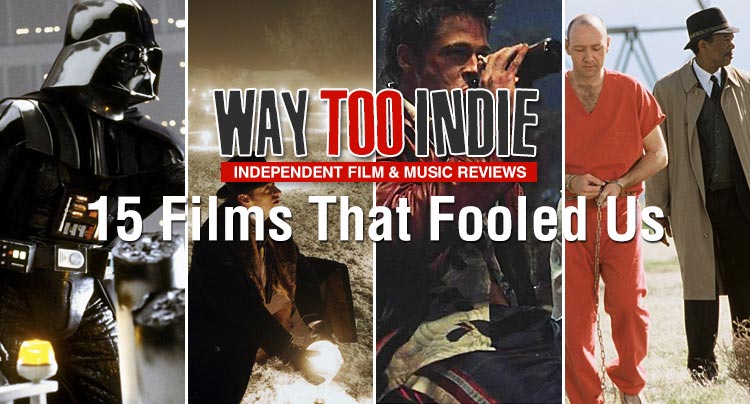
Since April starts with people getting fooled, Way Too Indie has decided to end the month by asking its writers when they’ve been fooled by a film. Plot twists have been popular in films for ages, and for good reason. Audiences love when a film manages to successfully pull one over on them, and when done well enough, the film can cement its place in cinematic history. After listing our favorites, we combined our picks and came up with a list of 15 movies that left us with our mouths wide open. Before you read on to see our list, please take note: We have tried to avoid spoilers in our descriptions, but some people might be more sensitive than others when it comes to what constitutes a spoiler. Read carefully, or better yet, just go see these great films already!
WARNING: Mild spoilers ahead
15 Films That Fooled Us
#15 – Dear Zachary
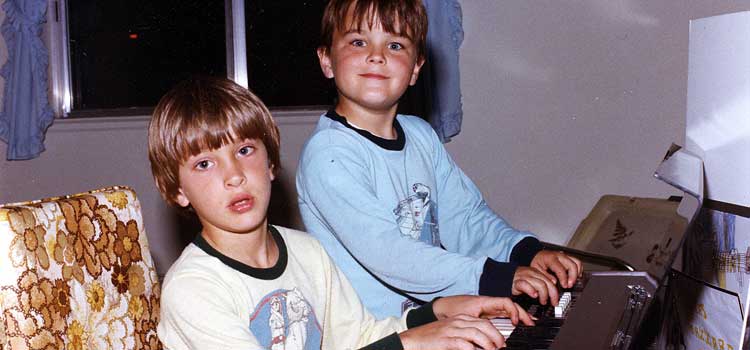
When Andrew Bagby was murdered by his pregnant girlfriend, director Kurt Kuenne set out on a personal project for his now deceased friend. Kuenne interviewed everyone who knew Bagby so that one day his child could learn about his father. Kuenne had no idea what would actually happen once he started filming, and Dear Zachary captures every single anguished moment of it. There’s a genuine, emotionally raw quality to Dear Zachary that viewers can immediately relate to, which makes the devastating ending hit like a wrecking ball to the gut. It’s one of the few films guaranteed to turn its viewers into a sobbing mess by the end, and the raw power of its story is why it still has a lasting impact with people today. [CJ]
#14 – Se7en
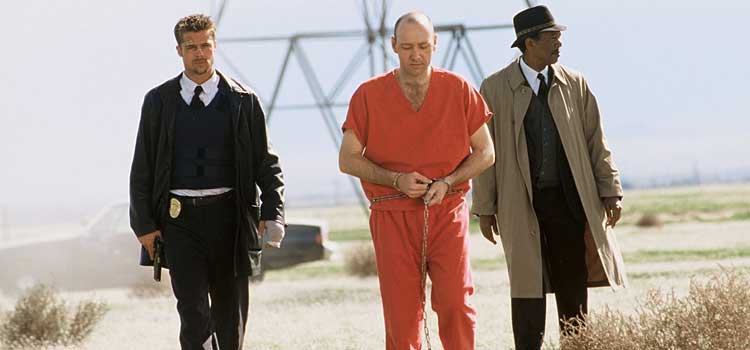
“What’s in the box?!” are four words that changed the way people thought of serial killers (and boxes) forever. In 1995 the world was introduced to David Fincher, before Fight Club and Zodiac solidified his status as one of the most revered directors in Hollywood, and after Alien 3 could leave too bad of a taste in our mouths. If you call yourself a Fincher fan, you’re all too familiar with the story of detectives Mills (Brad Pitt) and Somerset (Morgan Freeman) hunting the serial killer John Doe (Kevin Spacey) who orchestrates his murders years in advance, and bases them off the seven deadly sins. With every murder more sordid than the previous one, nothing prepares them – or us – for the heart-pulsating shocker at the end, when the contents of that box made John Doe into one of the most notorious on-screen villains. Here’s a funny story about that: producer Arnold Kopleson at first refused to allow the end to pass because of its sheer psychological brutality. Brad Pitt came to the rescue and said he’d walk if they didn’t allow Fincher to film the intended finale. So, we have Pitt and Fincher to thank for all those sleepless nights. On a personal note, its still my favorite Fincher film by a country mile. [Nik]
#13 – The Usual Suspects
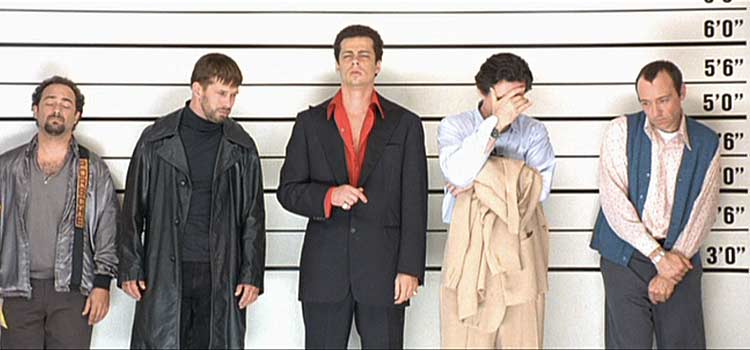
Lately, Bryan Singer’s something of a usual suspect himself (it was right there, I’m sorry…) but forget all about that for a second. Before he ventured into the world of comic books and beanstalks, Singer directed a little film you may have seen called The Usual Suspects. The success of Suspects put him on the map and gave him carte blanche to work on X-Men, which rippled into the insane popularity of superheroes today. So, in a way, we can blame Keyser Soze for the mind-numbing number of comic book movies today. Regardless, nothing could change our thoughts about one of the greatest tricks the devil ever pulled. Premiering in 1995 (a year that turned out great for shockers), the story follows Kevin Spacey’s Verbal Kint, a survivor of a bust gone terribly wrong, as he recounts the events to Agent Kujan (Chazz Palminteri) while drinking coffee in a police station. That’s all brilliant minds need sometimes, and a film that was compelling enough with its intricate narrative and colorful cast of degenerates, became an entirely different beast with its final sequence, putting the twist in plot-twist more memorably than M. Night Shyamalan could ever dream of. Thanks in large part to this ingenious turn of events, the film went on to win two deserving Oscars for Spacey and screenwriter Christopher McQaurrie. [Nik]
#12 – The Prestige
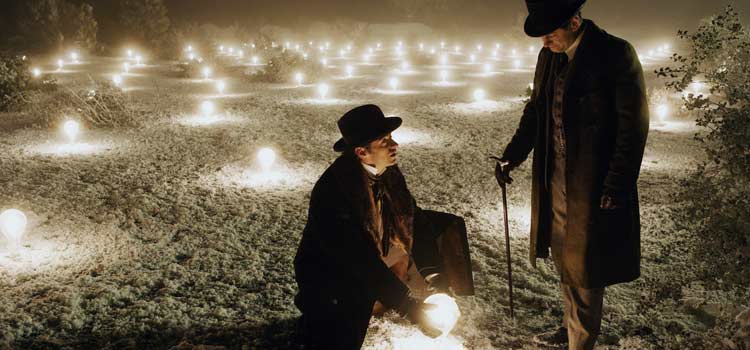
It’s no coincidence two of my picks on this list of twisty films are from Christopher Nolan and his screenwriting partner/brother Jonathan Nolan. The two know how to tell a story that keeps you guessing. The Prestige is often overlooked among Nolan’s work, it had the misfortune of releasing between Batman Begins (Nolan’s fabulous reinvention of what comic-based film could be) and The Dark Knight (quite possibly the best comic-based film ever released, if I have anything to say about it). So you may have missed this one. Starring Nolan favorites Christian Bale and Michael Caine, along with Hugh Jackman and Scarlett Johansson, The Prestige follows two up-and-coming magicians in 19th century London. While at first partners in the same act, the two become competitors, and indeed nemeses, when a magic act goes tragically wrong. From then on their careers are a series of attempts to get vengeance on the other, while also trying to attain top magician status. Their hate filled ambition leads both to drastic and questionable measures, but it isn’t until the very end when–like their magic tricks–the real secrets behind just how far each was willing to go are revealed, and its truly astonishing. When you discover the secret to a magic trick, all you want is to re-watch it and see if you can spot the illusion, so too does The Prestige demand repeat viewings. [Ananda]
#11 – Tell No One
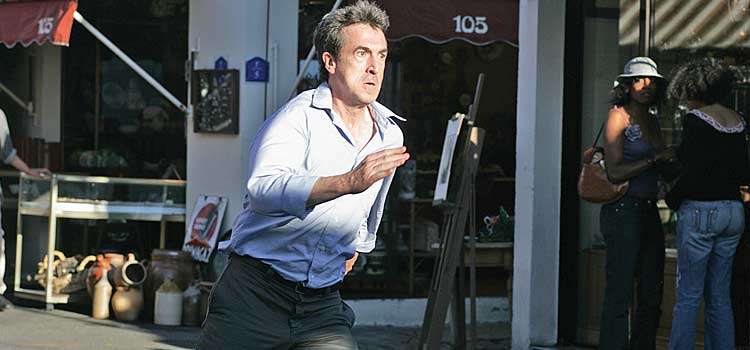
This is a film that I love to recommend to people who normally scoff at having to read subtitles because this French whodunit film is that good. Tell No One doesn’t waste any time setting up the central plot. Alexandre Beck (played by the French Dustin Hoffman lookalike, François Cluzet) jumps into the water upon hearing his wife Margot scream from the other side of the secluded lake. As he climbs up the dock he gets knocked unconscious yet remains the prime suspect after the police find Margot brutally murdered. Despite evidence piling up that supports Alex as the murderer, he seems too distraught to actually be guilty of the crime. Then the film reveals the first of many plot twists. Eight years after the tragic event, Alex receives an email proving that Margot is still alive. Boom! Just when you think you are close to figuring it out, Tell No One presents a new piece of the puzzle. [Dustin]
#10 – Star Wars: The Empire Strikes Back
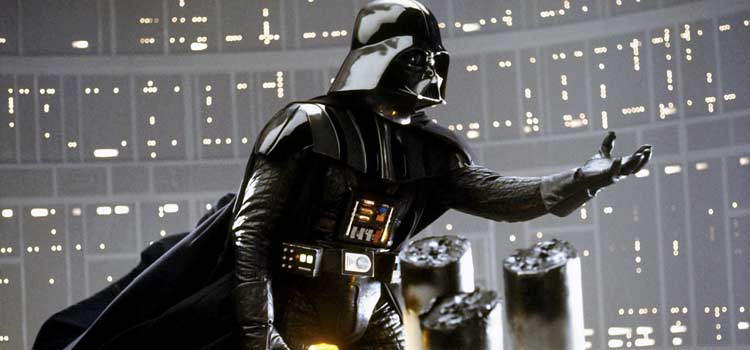
We’ve all seen the (unnecessary) prequels of the insanely ubiquitous Star Wars series by now so the mystery of Luke Skywalker’s origin is somewhat ruined. But for us older folks who had just the OT (Original Trilogy) while growing up, seeing the arc of Luke’s daddy issues culminate at the end of The Empire Strikes Back blew everyone’s mind. It starts in Episode 4 A New Hope, when Luke begins questioning Obi-Wan Kenobi about his enigmatic father who fought alongside Kenobi during the Clone Wars. Kenobi reveals Skywalker’s father was murdered by the heinously sinister Darth Vader. But then in Episode 5 everything changes. Luke is locked in a duel with Vader in the pit of the monstrous floating Cloud City on the planet Bespin. While it looks as if Vader is about to put Skywalker to the sword, he instead reveals the answer Luke has been waiting for. Skywalker is left in ruin and audiences around the world were left with a three year break before the finale of the series wrapped everything up. [Blake]
#9 – American Psycho
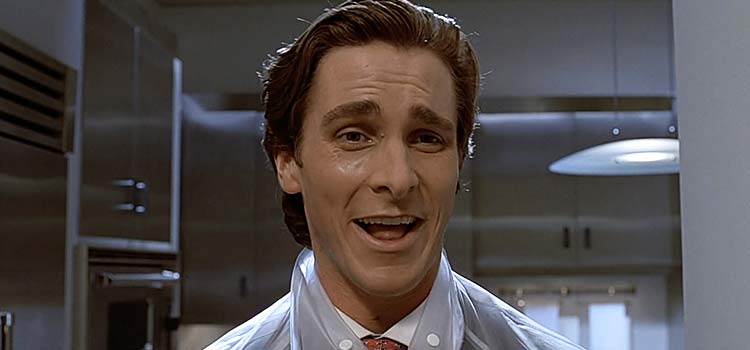
As far as revelations go, the final twist in American Psycho is more bewildering than earth-shattering, but that’s what makes it great. Watching Christian Bale gruesomely plow through hapless victims as New York trader Patrick Bateman only to eventually realize that the murders may not have played out the we we or Patrick thought, is ambiguous and ambitious in the best way. Bale sells the crap out of Bateman’s revelation, and Herron conjures a maelstrom of paranoia and anxiety to swirl around him. The plot twist in American Psycho has been seen before and is a tired tune at this point, but Herron and Bale play it pitch-perfect. It’s one of those reveals that, like the one in Oldboy (also on our list), sticks with you long after the credits roll instead of dissipating immediately. [Bernard]
#8 – The Sixth Sense
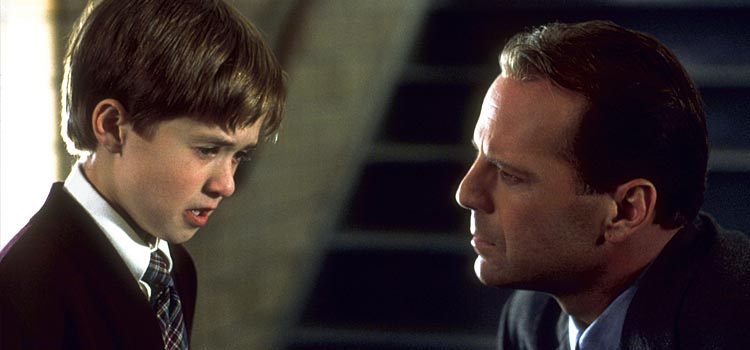
The Sixth Sense holds a certain stigma around it that has everything to do with someone either ruining the hugely shocking surprise ending for others, or because once you’ve seen it all the way through, it feels like the magic is gone. However, I’d argue this is absolutely a mistake on the part of potential viewers (thank goodness for a generation of younger people who are blissfully unaware) and of those who’ve already seen this gem of a horror film. Wildly creepy and excellently paced, the twist ending shouldn’t be the only thing that people remember about this film. Bruce Willis is perfect in his role as Dr. Malcolm Crowe, a children’s therapist whose marriage has lost steam. When he takes on a new patient, Cole (Oh, Haley Joel Osment if only cuteness lasted), with a very particular issue–seeing dead people–he begins to feel his methods may not work, until he starts to give Cole the benefit of the doubt. M. Night Shyamalan has tried so hard to duplicate the brilliance of his deception in this film’s ending with almost every other film he’s done since, and unfortunately has never been quite as successful. But anyone wanting a truly good scare, mixed with the sort of heartfelt character investment that makes the plot that much more enthralling, will never be disappointed with The Sixth Sense, time and time again. [Ananda]
#7 – Saw
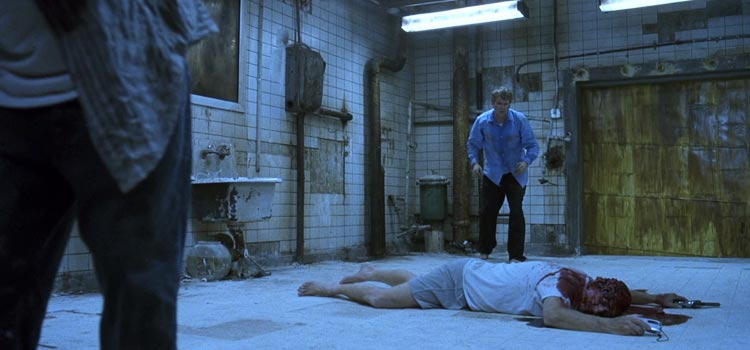
Just mentioning the Saw series nowadays will result in an eye roll or a sigh because of how ridiculous the franchise got with pumping out a new film every year. But before Saw spiraled off into a massive cash cow of a franchise, it began as an original thriller/horror film featuring a serial killer named Jigsaw who devised puzzles for his victims to figure out. Gruesome puzzles. The film opens (watch a clip) with two strangers who find themselves chained to opposite sides of a bathroom. Between them is a dead man holding a tape player and a gun. They both discover a cassette in their pocket and work together to retrieve the tape player that is just out of their reach. Their jaded past gets exposed after listening to each other’s tapes, discovering the only way out is for one to kill the other. Say what you want about the acting or even the franchise as a whole, but Saw includes one of the most unforgettable endings that you won’t see coming. [Dustin]
#6 – Diabolique
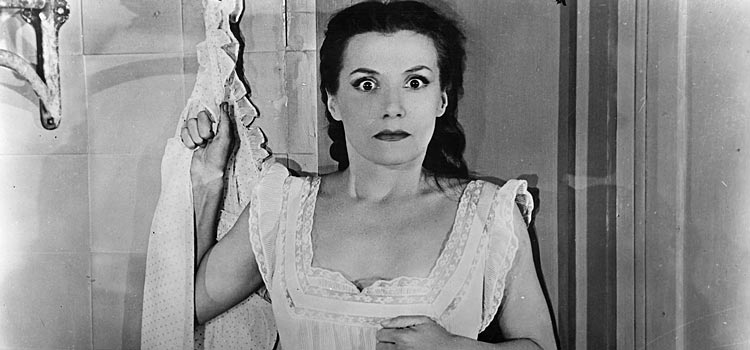
Diabolique‘s now-famous plot twist is perfect, sublime in its execution and ahead of its time by decades. Henri-Georges Clouzot’s nail-biter masterpiece gets my vote for best non-Hitchcock Hitchcock picture, and its brilliance all hinges on one final, heart-stopping surprise in the bathroom. When the wife and mistress of a headmaster conspire to murder their shared ex-lover, sightings of the deceased begin to pop up all over the school premises. When the wife finally arrives at that fateful moment in front of the bathtub, get ready for one of the most classic shocks in all of cinema. Sure, the plot and premise of Diabolique are absurdly implausible, but that’s the power of good movies: they make you believe in the impossible. [Bernard]
#5 – Fight Club
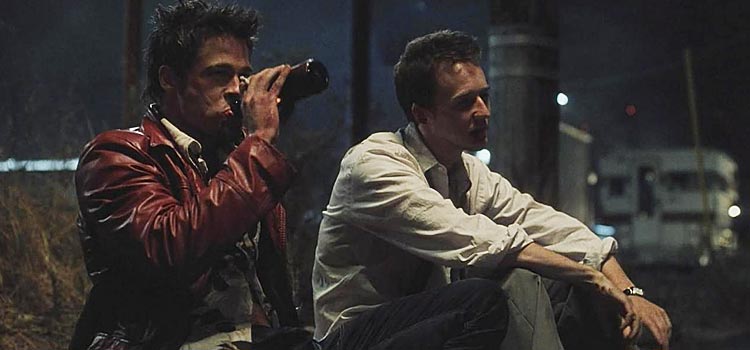
David Fincher is well represented on this list, Se7en is a personal favorite, and while his films have plenty of plot curveballs, what Fincher excels at is the art of the twisty character. He is at his best when working with deplorably questionable characters and while John Doe is terrifying in his sociopathy, there have been few characters in film that demand attention the way Tyler Durden does in Fight Club. Adapted from Chuck Palahniuk’s novel of the same name, Fight Club follows Edward Norton’s Narrator as he gets in with Tyler Durden, Brad Pitt’s most memorable role. Depressed, sleep-deprived, and caught in lethargic consumerism, the Narrator meets Tyler on a plane and is immediately sucked into his charismatic anarchist world. Together they form Fight Club (of which we do not speak), and its barbaric, therapeutic appeal to bored blue-collar workers like the Narrator turns into a nationwide underground movement. When Tyler’s power becomes chaotic and dangerous the Narrator tries to uncover his plans, and ends up learning more about himself. All to mind-blowing effect. [Ananda]
#4 – Chinatown
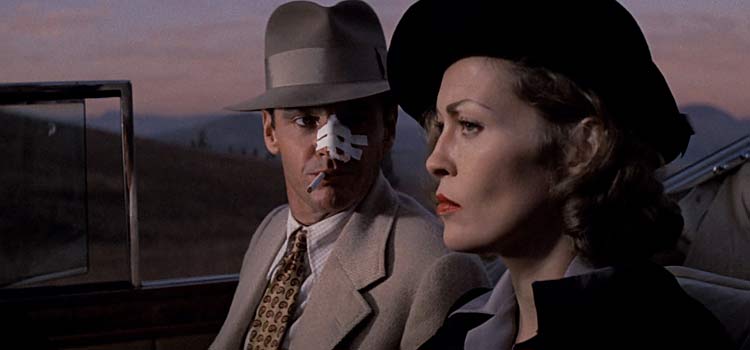
Say what you want about Roman Polanski and his messed up private life, but the man has proven time and time again that he can direct circles around most of his contemporaries. None is perhaps so potently absorbing as his 1974 crime mystery Chinatown, starring Jack Nicholson and Faye Dunaway in peak form. What starts off as a routine investigation into the disappearance of an L.A. Department of Water and Power engineer, turns into something much more intriguing, complex and diabolical and all before P.I. Jake Gittes (Nicholson) can say “I cut myself shaving.” His life completely changes when he meets and falls for Evelyn Mulwray (Dunaway), daughter of powerful tycoon Noah Cross (John Huston,) and decides to help her with her… predicament. It’s not for nothing that Robert Towne’s Oscar-winning screenplay is mentioned ad nauseam in every screenwriting course, lauded for its brilliant structure and build-up to a – you guessed it – shocking finale that still leaves me jaw-dropped after countless repeat viewings. I’m just not sure which scene gets to me more; the reality of Evelyn’s sickening family history revealed slap by slap, or the cruel end securing “Forget it Jake, it’s Chinatown” as one of the most haunting final words in cinema. [Nik]
#3 – Psycho

Despite many believing the “big reveal” in Hitchcock’s Psycho happens at the end of the movie in the Bates’ basement, the true twist comes halfway through the film in the motel. What happens to Janet Leigh’s Marion Crane in that famous shower scene is one of the most innovative, forward-thinking jukes in movie history, and the film’s revolutionary (at the time) plot structure is seldom used to this day, as few filmmakers dare to be so audacious. The shower scene is immaculate, obviously, but few pay homage to what it actually meant for the movie. From that scene forward, all bets are off. We’re disoriented, we’re confused, our allegiances are shifted, and Hitchcock ingeniously puts himself one step ahead of us. They don’t call him the master for nothing: we’re just followers, guinea pigs he’s tickled to toy with. [Bernard]
#2 – Memento
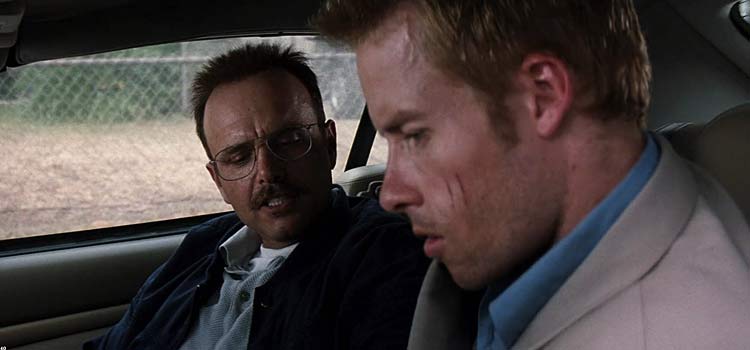
Oh, Chris Nolan, how you love to mess with our minds. It would be annoying if it wasn’t always so genius-ly well done. Memento isn’t just a film with a twist ending; its scatterbrained storytelling literally keeps you guessing with every scene and because it’s literally told backwards, its twist end is actually a twist beginning. Guy Pearce stars as Leonard, a man with short-term memory loss and the inability to create new memories. Leonard uses a system of notes, Polaroids and tattoos to continually remind himself of his mission: to find and kill the man who murdered his wife. Two storylines portray Leonard, one that runs straight forward chronologically of Leonard on his motel phone telling the story of Sammy Jenkins, a man he encountered in his days as an insurance fraud investigator, who had a similar memory problem that led to the accidental murder of his own wife when he gave her too much insulin. The second storyline is told backwards as Leonard searches for his own wife’s killer, trusting and untrusting all the wrong people. The end/beginning reveals a truth that is far more complicated than just solving a murder, but gets at the very nature of revenge itself. I did not catch all the nuance in this film and it’s ending upon my first viewing, repeat viewings are absolutely necessary. [Ananda]
#1 – Oldboy
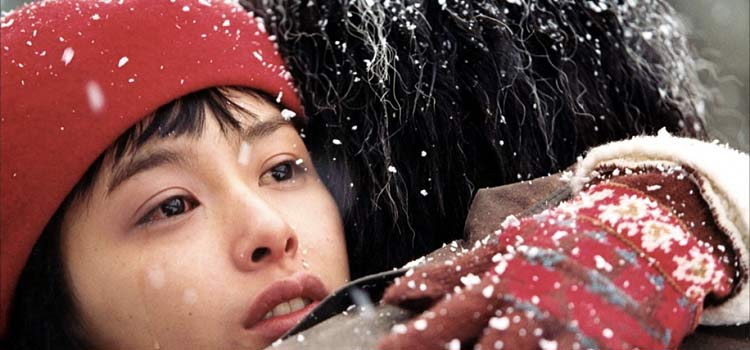
When Oh Dae-Su is let go after 15 years of captivity, the first question on his mind is who put him there. It doesn’t take long before he’s told that the “who” doesn’t matter, it’s the “why.” That “why” is what puts Oldboy at the top of our list. Dae-Su’s quest for vengeance is director Chan-Wook Park, and the “Korean New Wave”, at its peak; gorgeous cinematography, powerful writing, and bravura sequences (any mention of Oldboy must mention the classic one-take fight scene). But none of this could prepare audiences for the climax, when Dae-Su’s captor unveils his own master plan of revenge. It’s a twist almost nobody saw coming, and to this day people still get unsettled thinking about it. That twist ending is why Oldboy has grown such a large following since its release, and is required viewing for any cinephile. [CJ]
